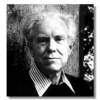Elliott Carter

Elliott Carter
Elliott Cook Carter, Jr.was an American composer who was twice awarded the Pulitzer Prize. He studied with Nadia Boulanger in Paris in the 1930s, then returned to the United States. After an early neoclassical phase, his style shifted to an emphasis on atonality and rhythmic complexity. His compositions are known and performed throughout the world; they include orchestral, chamber music, solo instrumental, and vocal works...
NationalityAmerican
ProfessionComposer
Date of Birth11 December 1908
CountryUnited States of America
The idea of counterpoint for instance is something that has invaded my music and very few people to date can write counterpoint.
The Royal Festival Hall, I don't know whether it was 80 or 70, gave a whole festival of my music there with orchestra and everything. String quartets.
Even I wrote it when I first started to compose after I left Paris. I wrote pieces that were comparatively accessible and easy to understand.
The first thing that struck me about contemporary music in general had been thatthere was not much interest in rhythm.
My musical life started with hearing and being fascinated by contemporary music.
When people listen to my music, I hope that they will notice that if you take a piece by a composer like Schubert, the major and the minor triad is an extermely important thing not merely as harmony, but in creating melodic lines. Schubert is always walking up and down with arpeggios on C, E, G and so forth. I am not doing anything different really, except using a different system of harmony.
The Quartets have been a major part of my work.
The Third Quartet I made the instruments in pairs - Two different pairs - Violin and viola, and violin and cello. They played very different things from each other all through the whole piece.
Right at the end of the war I wrote a piano sonata, which was written at a time when Sam Barber used to come down here and we used to have lunch together in a very nice old hotel that's now not there.
That was one of the big problems when I was at Harvard studying music. We had to write choral pieces in the style of Brahms or Mendelssohn, which was distressing because in the end you realized how good Brahms is, and how bad you are.
Almost every one of my various zero numbered birthdays has had a big concert in London and often in Paris.
Yes, I get a report from BMI about the frequency of performances, and it is very surprising. They played one of my most advanced pieces, and one of my most unusual ones on the radio.
Silences between movements are employed only in order to bring the opposing duo to the fore.
My entire life has really revolved around music that was written about the time that I was born, 1908, to just before the First World War and shortly after it. This music I've always known, and it is that music that's most important to me.